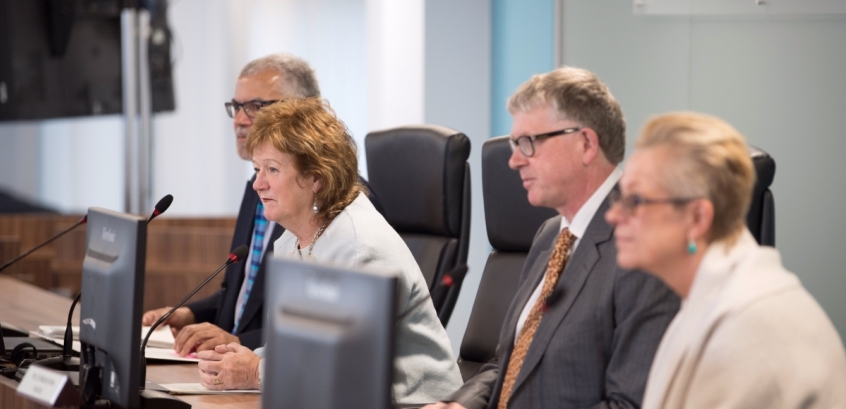Institutions like the Church are putting their reputations ahead of victims of child sexual abuse, an interim report from the Independent Inquiry into Child Sexual Abuse (IICSA) published yesterday said.
IICSA is examining how 21 British institutions, including the Church of England and the UK Catholic Church, responded to allegations of abuse.

A 109-page interim report published on Wednesday called for legal protections and compensation for victims of child sexual abuse to be revamped.
It revealed that as a result of the inquiry, and the accompanying 'Truth Project' designed to hear the stories of abuse victims, 1,575 referrals have been made from March 2015 and June 2017 to a police team dubbed Operation Hydrant.
Of these 164 police referrals were made in relation to abuse in religious institutions in England and Wales.
This meant that religious institutions were the third biggest group, after schools and children's homes, about which referrals were made.
When it came to the effect on victims' faith, the report said that abuse either led them to reject religion entirely or find comfort in it.
'Victims and survivors may question their religion and spiritual beliefs, particularly where the perpetrator was connected to their religion or faith. They may also use religion and faith as a coping mechanism for resilience and recovery,' it said.
'They can feel abandoned or punished by a god and begin to question their understanding of the world. Studies show that this is particularly likely when the perpetrator is someone who represents God in the eyes of the victim, or has used religion or spiritual beliefs to justify the sexual abuse.'
It went on: 'The Inquiry has heard that some victims and survivors continue to practise their religion or spiritual beliefs to ensure that their children grow up having faith. Others try to use their religion or spiritual beliefs as a way of dealing with the sexual abuse they suffered as a child but can find it challenging and be left feeling disillusioned.'
The bishop of Horsham, Mark Sowerby, the Church of England's deputy lead safeguarding bishop, said: 'We welcome IICSA's interim report which provides a helpful overview of the work undertaken so far and has set out what the Chair and Panel consider to be the key emerging themes. As a Church we will be studying the report and the Panel's recommendations carefully, particularly those which suggest specific changes to help us as an institution better protect children from sexual abuse.
'The Church is committed to improving safeguarding right across its work and we were one of the first institutions to call for the Inquiry. We are particularly thankful to all the survivors who have given evidence to the Inquiry and helping us all to learn lessons, so we can better protect and respond to children and young people.'
The inquiry has been dogged by controversy after it was set up by Theresa May as home secretary in 2015. Prof Alexis Jay, now chair of the inquiry, is the fourth person to hold that position after multiple resignations.
The inquiry's next hearing is in July and will focus on how the Church of England responded to allegations against Peter Ball, the former bishop Gloucester, who was eventually jailed for abusing young men in 2015.













